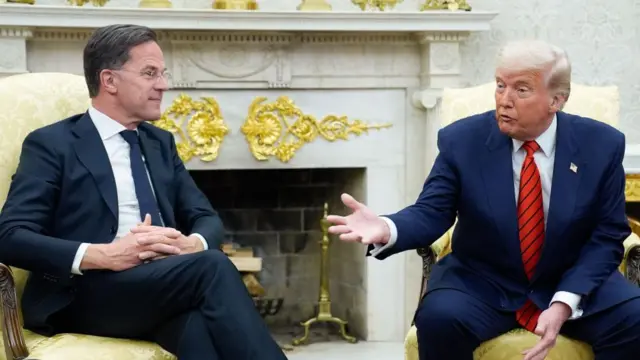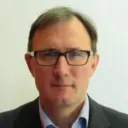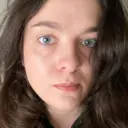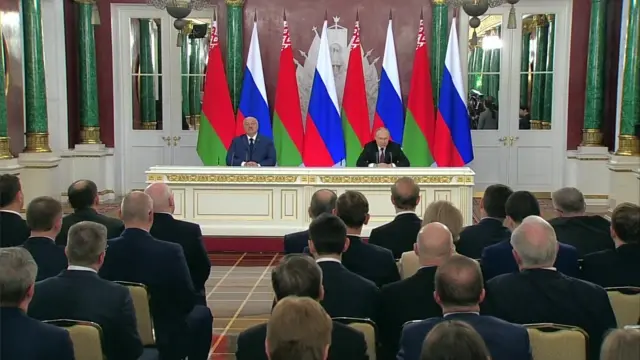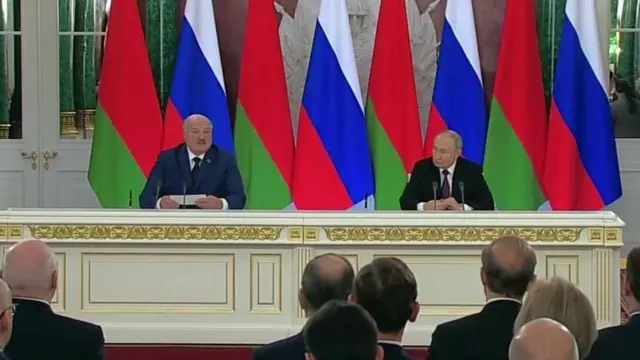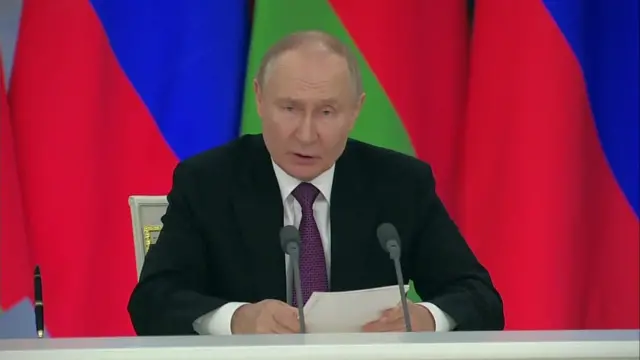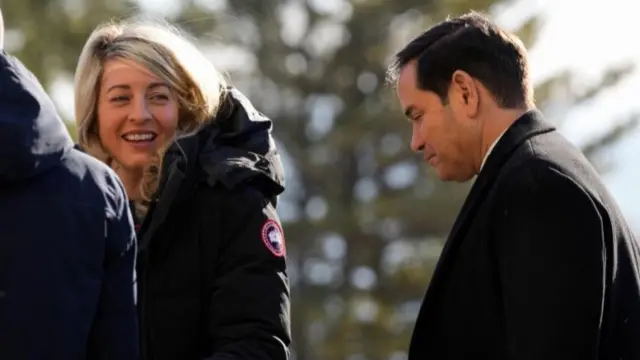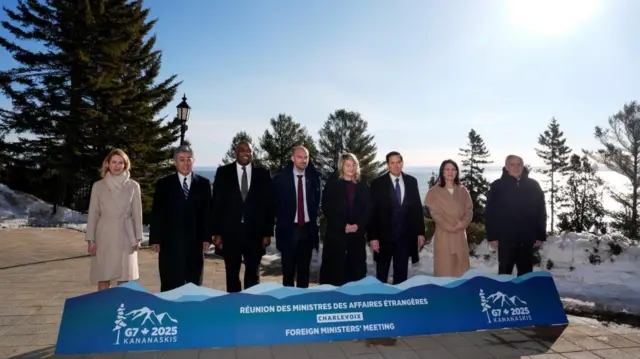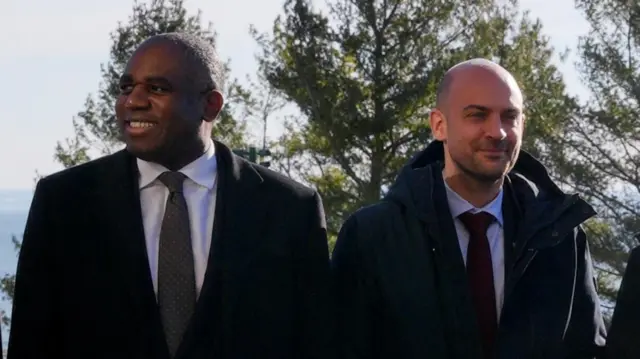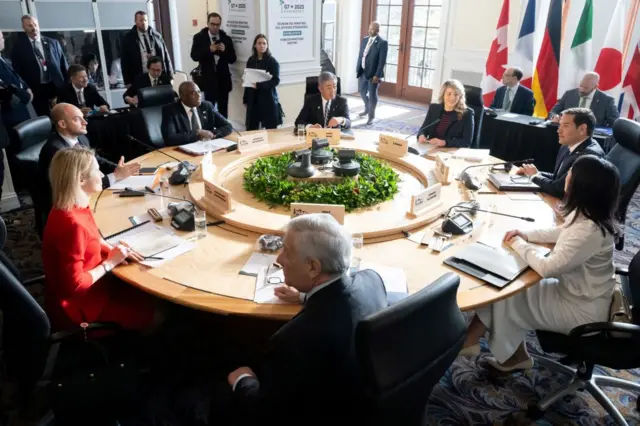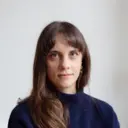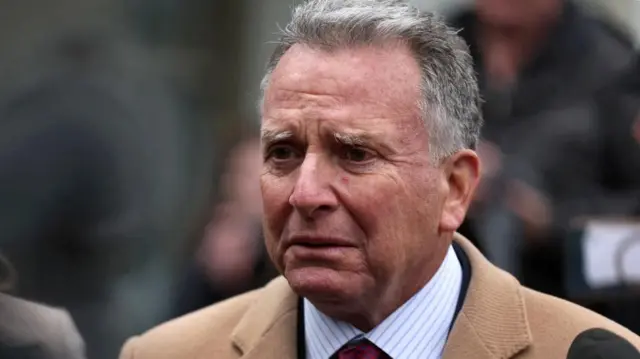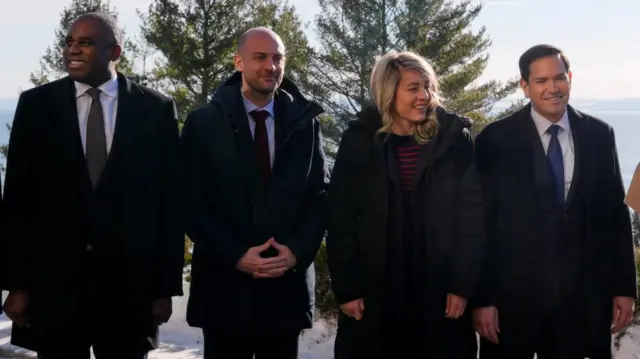Hopefully Russia will do the right thing, Trump sayspublished at 17:58 GMT 13 March
More now from the meeting between the US president and Nato secretary-general Mark Rutte.
Rutte describes the amount of Nato members increasing their defence spending in recent weeks as “staggering,” adding that all are committing to spending more on defence.
"We need to do more, but I really want to work together with you ... to make sure we will have a Nato that is really invigorated under your leadership and we're getting there," he says to Trump.
Trump replies saying he is "getting good signals outside of Russia", adding that "hopefully they'll do the right thing".

